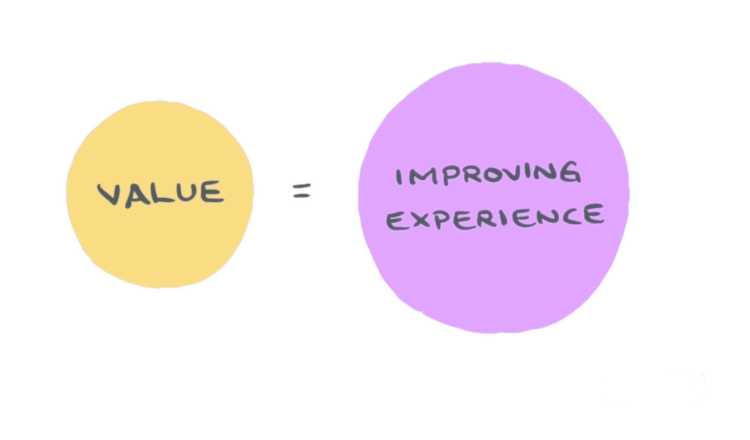The Experiential Nature of Value
What is Value?
In the most general sense, value is the potential that certain parts of Reality have to improve your experience. Practically, anything that you consider capable of improving your experience over a baseline is, in your eyes, a carrier of 'value'. Having a notion of whether something — any something — is conducive or can be used to improve immediate experience is perhaps the most basic and innate assessment that the human mind is able to make.
Naturally, the assessment of value is very personal and highly contextual. Different people may have very different value appraisals for a same object. Even a single person will value things differently in different situations. As such, value is not a fundamental property of anything and only exists in relation to people and context. A ball, for example, is probably more valuable at the beach than it is at the office; and at the beach, it is more valuable to a child than to the parent who just wants to relax reading a book.
 Delivering value means improving experience.
Delivering value means improving experience.
People Having Experience
So value is a sense people have or perceive off of things — of artifacts, of people, of choices, or situations. To understand the experiential nature of value, we first have to understand ourselves as beings capable of experience. The term experience, just like value, is used to refer to many different things, but perhaps the most simple way to think about it is this one:
Experience is what you are having ⇩ right now ⇩.
Experience is not only what you are having as you read this text, but what you will continue to have when you stop reading. You can't turn it off, it happens spontaneously and it is so permanent that even during sleep you continue experiencing dreams.
Beings of humankind are eminently experiential, parts of Reality capable of experience. But being capable of experience is not what sets us apart, there are plenty of animals on earth having experience. What really makes our kind special is our awareness of it. It is an awareness not only of our current experience, but also of experiences we had in the past and the ones that may come in the future. This heightened awareness allows people to assess their experience in a way no other being known to us can.
People Seeking Value
Being aware of your experience may seem like a blessing, but it makes you liable to be dissatisfied with it. To your fortune, you have some control: You have 'volition', as psychologists call the ability to make choices, a 'voice' you can translate into behavior to shape your experience. And shape people do, because the stakes could not be more real: People live the rewards and consequences of their chosen behavior on their own skins. Choices are an expression of people's assessments of value and acting upon them is how we all keep our personal experience acceptable.
In other words, when you shape your experience via choices you are "seeking value". We all seek value to make our experience better, doing our best to keep it bearable and then, if possible, to make it enjoyable. Perhaps this is the message hidden in Maslow's popular "Hierarchy of Needs":
- A journey towards meaning, proposed by Abraham Maslow in 1943.
However, the role anyone gets to play in shaping their own experience is limited. There is always so much that is beyond our control. The elements, notably, are a part of Reality we continually struggle to manage. There is also never a guarantee that your performed behavior will produce the experienced outcome we wish for, which explains why certainty and risk reduction play such an important role in our assessments of value.
The Experience Economy
The modern economy is perhaps the grandest manifestation of humankind's natural drive to improve their experience. The value people see in avoiding certain experiences and having certain others is the value everyone is looking for. It is also the one we have learned to deliver and trade with others. Who would have thought? What started as an individual game of survival became a dynamic where we all make ends meet by helping each other experience more of what we want and less of what we don't.
Not coincidentally, experiential value is also the one that every firm strives to create, deliver, and monetize. Not all of them do it successfully, but it is the duty of every product and service offered in the market to deliver experiential improvement. Our economy has become a laboratory where experiences are conceptualized, architected, and delivered through many mediums, fighting to find market fit and competing to gain market share.
The world is awash in capital, talent, ideas, and technologies waiting to be put to work to improve lives in the most unbelievable ways. What is your role in the economy of experiences? If you are unsatisfied with it or still on your way to find one, the good news is that there has never been a better time to do what you love. As you find your calling, just bear in mind: Those who improve the experience of others in the most special and magical ways reap the biggest rewards.
✎ Connection to